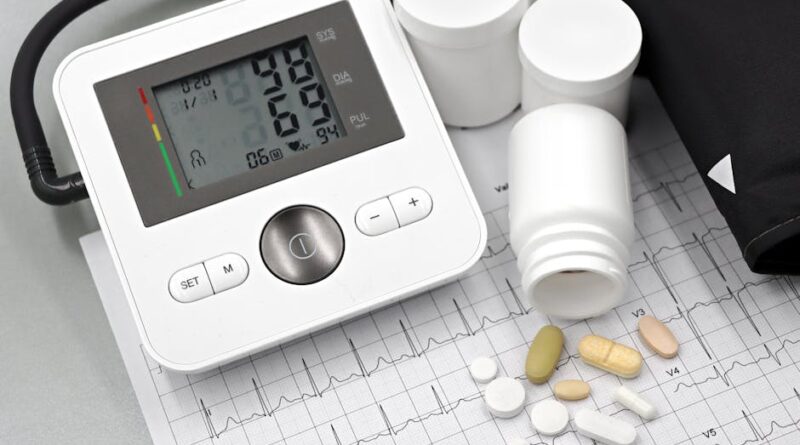Cholesterol and Chronic Health Conditions
Did you know that nearly 29 million adults in the U.S. have high cholesterol? that’s a significant number! Many people don’t realize how cholesterol can affect their health. It plays a crucial role in chronic conditions like heart disease and diabetes. In this article, we’ll dive into what cholesterol is, why it matters, and how it connects to chronic health issues.
What is Cholesterol?

Cholesterol is a waxy substance found in your blood. Your body needs some cholesterol to build healthy cells. However, too much cholesterol can lead to serious health problems.
There are two main types of cholesterol:
- LDL (Low-Density Lipoprotein): Often called bad cholesterol, high levels can lead to plaque buildup in your arteries.
- HDL (High-Density Lipoprotein): Known as good cholesterol, it helps remove LDL from your bloodstream.
Think of LDL cholesterol as a thief that clogs the arteries, while HDL cholesterol acts as a cleaner that helps keep things clear.
Why Should You Care About Your Cholesterol Levels?

High cholesterol often has no symptoms, making it easy to ignore. Yet, it can lead to severe issues like heart disease, stroke, and diabetes. According to the CDC, about 20% of adults have high cholesterol, which can damage your heart without warning.
Here are some reasons to monitor your cholesterol:
- Protect your heart health.
- Reduce your risk of stroke.
- Lower your chance of developing type 2 diabetes.
How is Cholesterol Linked to Chronic Health Conditions?

Understanding the link between cholesterol and chronic conditions can help you take control of your health. Lets break it down.
Heart Disease
High levels of LDL cholesterol can form plaque in your arteries. This narrows your arteries and restricts blood flow. Over time, it can lead to heart disease. The American Heart Association states that about 697,000 Americans die from heart disease each year.
To reduce your risk:
- Eat a heart-healthy diet rich in fruits, vegetables, and whole grains.
- Exercise regularly.
- Avoid smoking.
Stroke
Strokes can happen when blood flow to the brain is blocked. High cholesterol can lead to the same plaque buildup seen in heart disease. This plaque can break off and travel to the brain, causing a stroke.
To lower your stroke risk:
- Manage your blood pressure.
- Control cholesterol levels through diet and exercise.
- Stay hydrated and maintain a healthy weight.
Type 2 Diabetes
High cholesterol can also contribute to insulin resistance, which is a key factor in type 2 diabetes. Individuals with diabetes often have high levels of LDL cholesterol and low levels of HDL cholesterol.
To manage cholesterol and diabetes:
- Focus on a balanced diet low in sugars and saturated fats.
- Monitor blood sugar levels regularly.
- Incorporate physical activity into your routine.
How Can You Manage Your Cholesterol Levels?

Managing cholesterol doesnt have to be overwhelming. With simple lifestyle changes, you can make a big difference.
Dietary Changes
Your diet plays a pivotal role in cholesterol management. Here are some foods to include:
- Fruits and Vegetables: These are high in fiber, which helps lower cholesterol.
- Healthy Fats: Avocados, nuts, and olive oil can raise HDL cholesterol.
- Whole Grains: Oats and barley can help reduce LDL levels.
On the flip side, aim to limit:
- Processed foods high in trans fats.
- Saturated fats found in red meat and full-fat dairy.
- Sugary foods and drinks.
Physical Activity
Regular exercise is key to managing cholesterol. Aim for at least 150 minutes of moderate aerobic activity each week. This can include:
- Walking
- Swimming
- Cycling
Even small changes, like taking the stairs instead of the elevator, can help!
Regular Check-ups
Getting your cholesterol levels checked regularly is essential. Talk to your doctor about how often you should be screened. Early detection can lead to better management of your cholesterol and overall health.
Common Misconceptions About Cholesterol
Lets clear up some misunderstandings about cholesterol:
Is All Cholesterol Bad?
No! Your body needs HDL cholesterol to function well. it’s the LDL cholesterol you need to be wary of. Maintaining a balance is crucial.
Can You Get Cholesterol from Food Alone?
While dietary cholesterol can impact your levels, your body produces most of the cholesterol it needs. Eating a healthy diet helps manage levels effectively.
Expert Insights
Dr. Jane Smith, a cardiologist, emphasizes the importance of understanding cholesterol. Cholesterol can be complex, but simple lifestyle changes can lead to significant health improvements, she says. don’t wait for symptomstake control of your heart health today.
Take Charge of Your Health
Cholesterol plays a vital role in chronic health conditions. By understanding what it is and how it affects your body, you can make informed choices. Regular check-ups, a balanced diet, and exercise are powerful tools in managing your cholesterol.
Remember, your health is in your hands. Start making small changes today. They can lead to big differences in your well-being.
Actionable Takeaways
- Get your cholesterol levels checked regularly.
- Incorporate more fruits, vegetables, and whole grains into your diet.
- Engage in regular physical activity.
- Stay informed about your health and consult your doctor with concerns.
For more information on managing cholesterol, check out the American Heart Association. Your heart will thank you!



